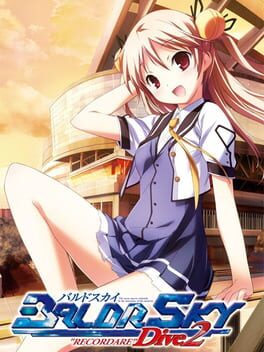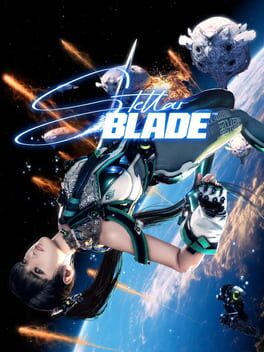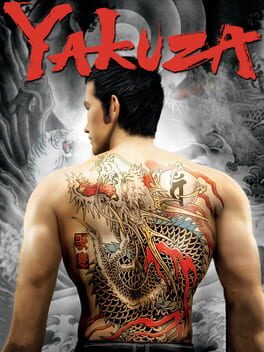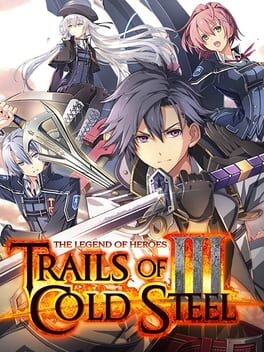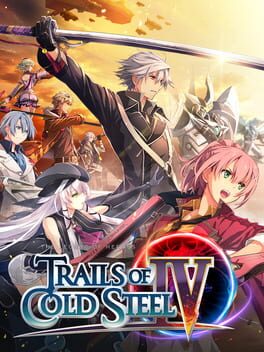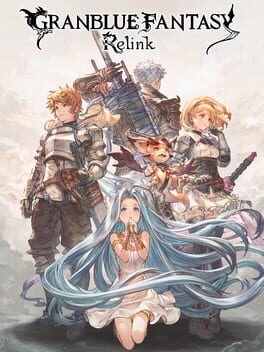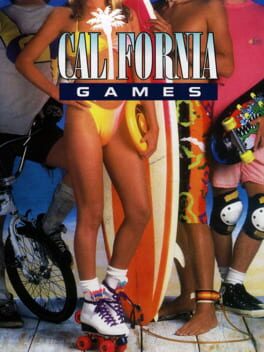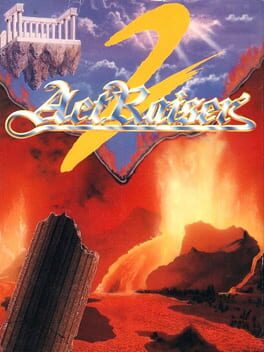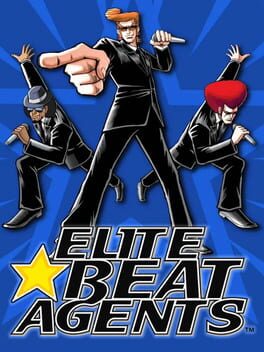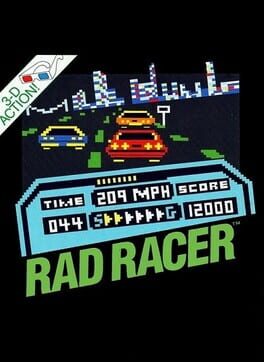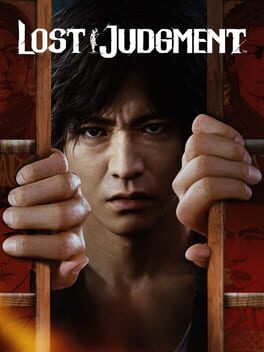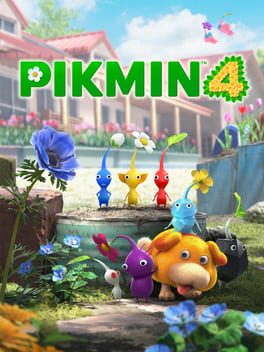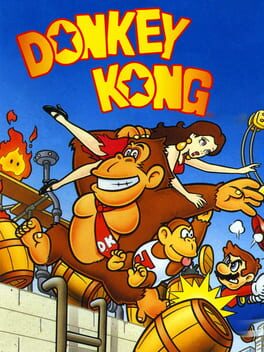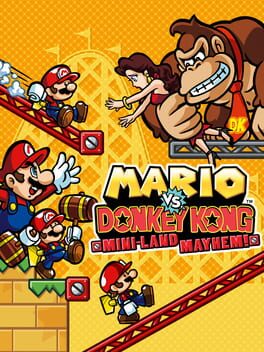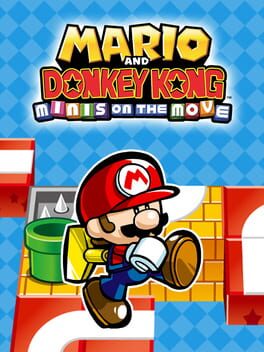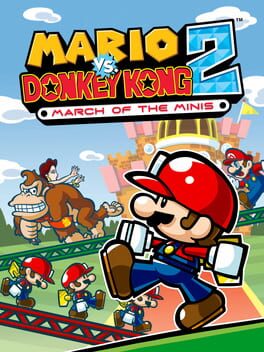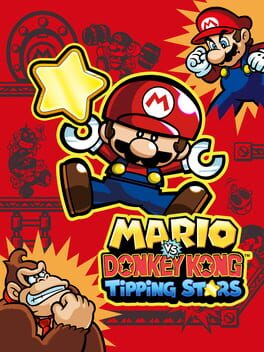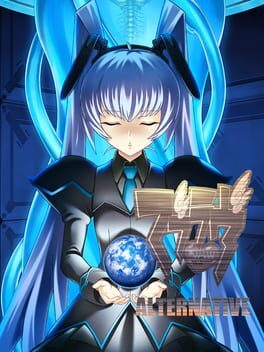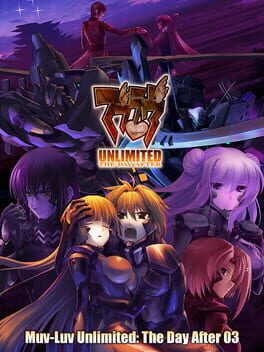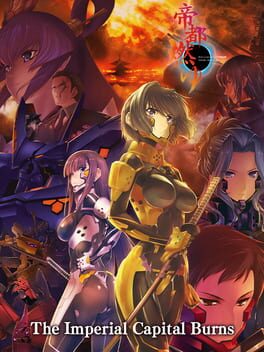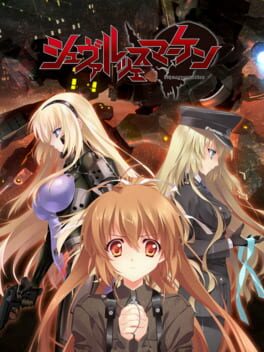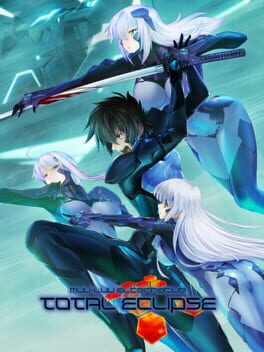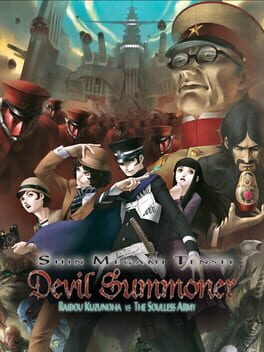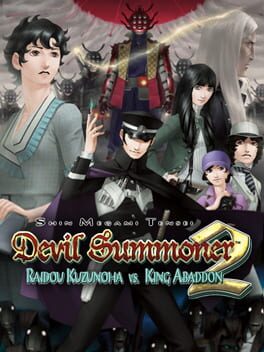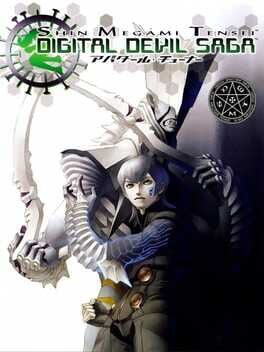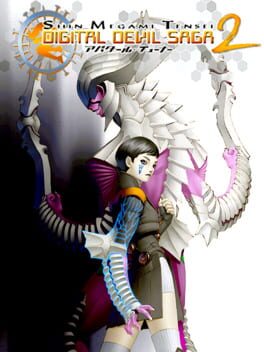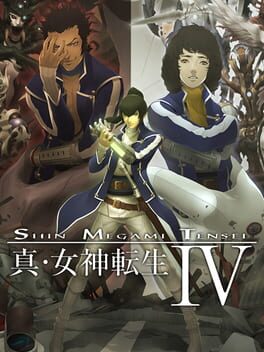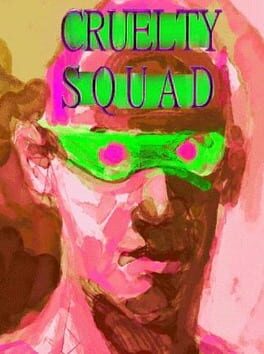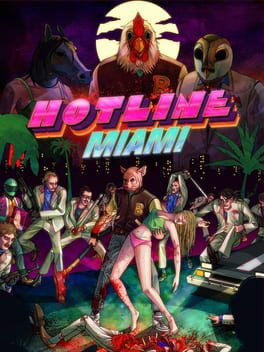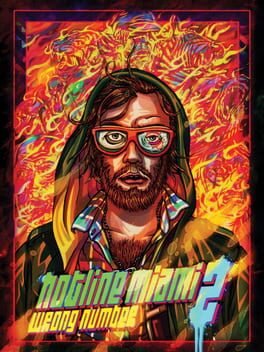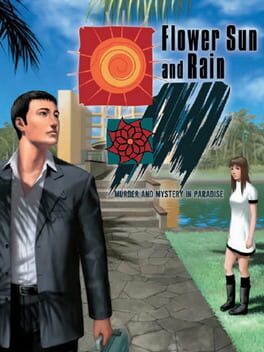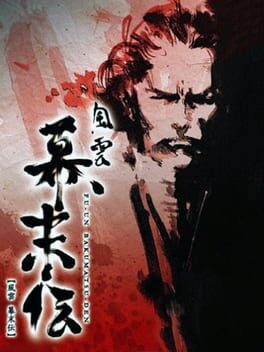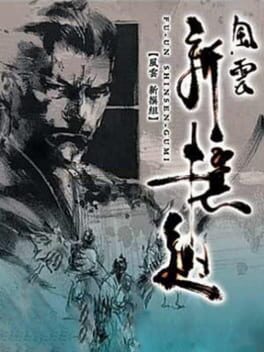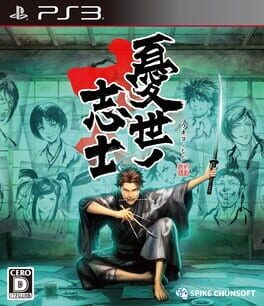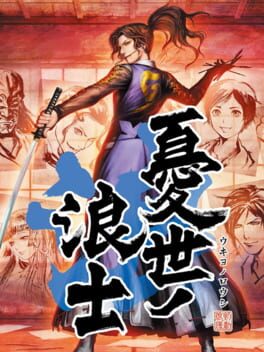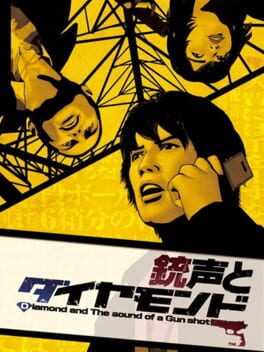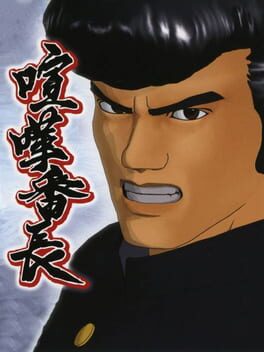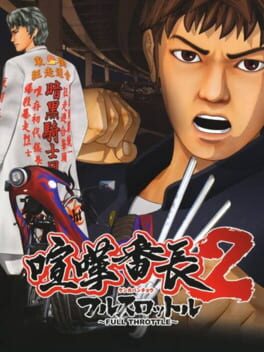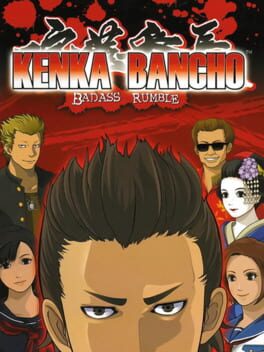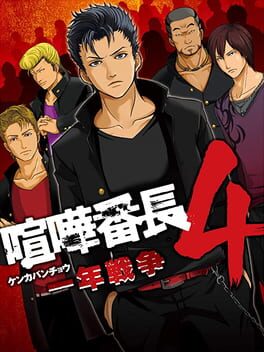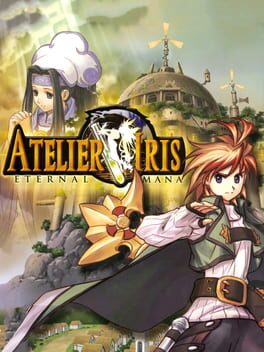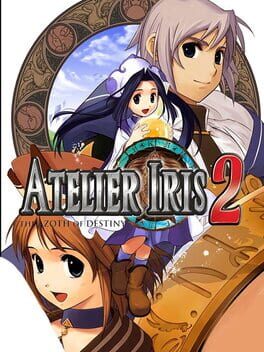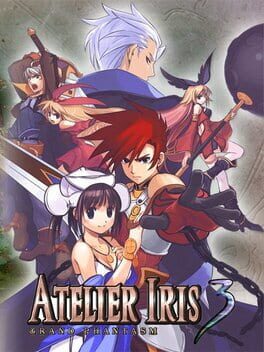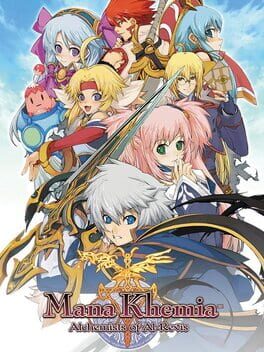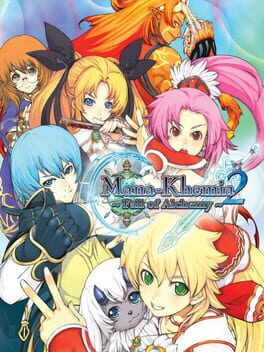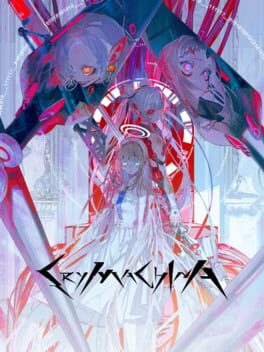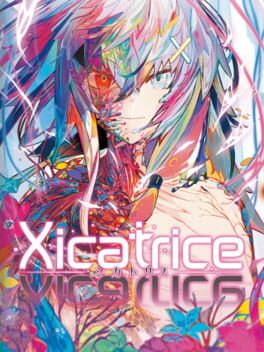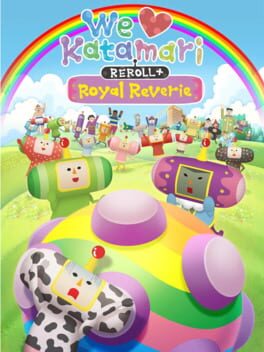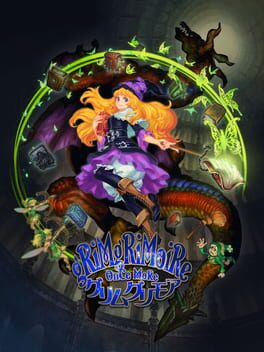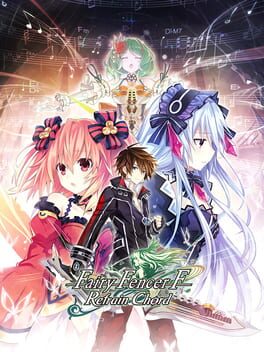Zoda
267 reviews liked by Zoda
Stellar Blade
2024
Yakuza
2005
(I played the undub patch btw I couldn't take the game seriously in English LOL)
Welcome to my rushed, not proofread review.
I was both scared and excited going into this. I had recently finished Yakuza 0, a game that I frequently think about and appreciate more and more as time passes, and was eager to explore the rest of this series that so many of my friends adore. I was scared, however, of the chance that I’d get scared off by Yakuza 1 due to how much older it was. I mean, I play PS1 dungeon crawlers for fun so I definitely didn’t have much to worry about, but still. I was adamant to play PS2 rather than Kiwami, both because I planned on playing Kiwami afterwards to see the differences, and so that the notorious age gap between K2 and Yakuza 3 wouldn’t strike me as hard as it did many others.
I was quickly surprised at how familiar Yakuza felt. I’m genuinely impressed at how much of the series identity and feel had already been captured by RGG in the very first entry. Running around Kamurocho felt like I was coming home after years, probably just like how Kiryu must’ve felt. Though I will say the side-content wasn’t too compelling. I don’t think I can remember a single substory, though perhaps a part of that is due to me deciding to completely focus on the main quest partway through.
I’d like to talk about that main quest now, actually. It’s pretty decent overall, albeit held back by a multitude of factors. This game is no longer than 20 hours yet it somehow still feels really padded. There are a lot of useless quests throughout the game that make you run around all corners of the map that are very obviously there to increase your playtime, and it always kept me from staying engaged. I thought the story was good though, particularly in the final stretch which seems to be a pattern in these games. It was certainly what kept me coming back to this one.
I don’t think I articulated my thoughts on the combat in my Yakuza 0 review very well, so I’ll try my best to do better here. Yakuza combat, on a systemic/mechanical level is good fun! But the enjoyment of its combat is directly tied to the battle design, which can unfortunately get really poor at many points during this game’s runtime. Yakuza PS2 shines when you’re fighting a small amount of enemies at once, both due to the game’s general clunkiness and because the battle arenas are almost always a little too small for the amount of foes the game loves to throw at you. For this reason, I was enjoying battles the most during the fights against Shimano, for example. It was just a good fun brawl, but I’m sad to say that these fights are in the minority. Most of them are just the game spawning a dozen goons in a tiny-ass room with half of them armed with guns that’ll stunlock you and prevent you from doing anything. Enemies armed with pistols in Yakuza 1 might be the worst ever. I hate them with a deep, burning passion. The combat would be infinitely more fun without them. The ‘difficulty’ in this game barely ever feels like a true challenge, it’s just armed goons who won’t let you make a single move without knocking you down for seconds at a time over, and over, and over, and over, and over, and over, and…. Yeah, I think you get the point. This game’s combat is the definition of hit-or-miss.
Also, I’d like to give a quick shoutout to that car chase mission in chapter 10. It sucked. I hated it. Chapter 10 was the worst part of any Yakuza game I’ve played the controls sucked so bad I wanted to jump off the nearest building like a full swan dive. But I digress.
On the whole, I think this game is decent. It has a cool story and can be quite fun at times. I think it’s aged a lot better than you’d assume, though it definitely has a lot of annoying clunk. This game is held back by a multitude of issues that I don’t think are tied to its age, its more of a general design thing. I do plan on playing Kiwami someday, so I’ll know if those issues ever get fixed then. But yeah, I don’t really have too much to say. It’s just a decent game. Very excited to play Yakuza 2 I hear its #fire.
Welcome to my rushed, not proofread review.
I was both scared and excited going into this. I had recently finished Yakuza 0, a game that I frequently think about and appreciate more and more as time passes, and was eager to explore the rest of this series that so many of my friends adore. I was scared, however, of the chance that I’d get scared off by Yakuza 1 due to how much older it was. I mean, I play PS1 dungeon crawlers for fun so I definitely didn’t have much to worry about, but still. I was adamant to play PS2 rather than Kiwami, both because I planned on playing Kiwami afterwards to see the differences, and so that the notorious age gap between K2 and Yakuza 3 wouldn’t strike me as hard as it did many others.
I was quickly surprised at how familiar Yakuza felt. I’m genuinely impressed at how much of the series identity and feel had already been captured by RGG in the very first entry. Running around Kamurocho felt like I was coming home after years, probably just like how Kiryu must’ve felt. Though I will say the side-content wasn’t too compelling. I don’t think I can remember a single substory, though perhaps a part of that is due to me deciding to completely focus on the main quest partway through.
I’d like to talk about that main quest now, actually. It’s pretty decent overall, albeit held back by a multitude of factors. This game is no longer than 20 hours yet it somehow still feels really padded. There are a lot of useless quests throughout the game that make you run around all corners of the map that are very obviously there to increase your playtime, and it always kept me from staying engaged. I thought the story was good though, particularly in the final stretch which seems to be a pattern in these games. It was certainly what kept me coming back to this one.
I don’t think I articulated my thoughts on the combat in my Yakuza 0 review very well, so I’ll try my best to do better here. Yakuza combat, on a systemic/mechanical level is good fun! But the enjoyment of its combat is directly tied to the battle design, which can unfortunately get really poor at many points during this game’s runtime. Yakuza PS2 shines when you’re fighting a small amount of enemies at once, both due to the game’s general clunkiness and because the battle arenas are almost always a little too small for the amount of foes the game loves to throw at you. For this reason, I was enjoying battles the most during the fights against Shimano, for example. It was just a good fun brawl, but I’m sad to say that these fights are in the minority. Most of them are just the game spawning a dozen goons in a tiny-ass room with half of them armed with guns that’ll stunlock you and prevent you from doing anything. Enemies armed with pistols in Yakuza 1 might be the worst ever. I hate them with a deep, burning passion. The combat would be infinitely more fun without them. The ‘difficulty’ in this game barely ever feels like a true challenge, it’s just armed goons who won’t let you make a single move without knocking you down for seconds at a time over, and over, and over, and over, and over, and over, and…. Yeah, I think you get the point. This game’s combat is the definition of hit-or-miss.
Also, I’d like to give a quick shoutout to that car chase mission in chapter 10. It sucked. I hated it. Chapter 10 was the worst part of any Yakuza game I’ve played the controls sucked so bad I wanted to jump off the nearest building like a full swan dive. But I digress.
On the whole, I think this game is decent. It has a cool story and can be quite fun at times. I think it’s aged a lot better than you’d assume, though it definitely has a lot of annoying clunk. This game is held back by a multitude of issues that I don’t think are tied to its age, its more of a general design thing. I do plan on playing Kiwami someday, so I’ll know if those issues ever get fixed then. But yeah, I don’t really have too much to say. It’s just a decent game. Very excited to play Yakuza 2 I hear its #fire.
Persona 3 Reload
2024
Wow.
I played Persona 3 FES in early 2023, soon after wrapping up my playthrough of the incredible Persona 4 Golden. What I found was a game with a lot of wonderful qualities, including but not limited to the story and characters, which was held back by many factors.
The gameplay, while far from bad, didn’t quite hook me. Tartarus was great at first but it quickly lost its flair. The daytime activities were decent, though it felt like something was missing. It was their first attempt at the new calendar system, so I get it, but the qualities I enjoyed were certainly weighed down. I wasn’t able to connect with the game the way so many others did. So, for me, Persona 3 was a game that I liked, one that I had a profound level of respect for, but not much more.
Fast forward a few months later and Persona 3 Reload was announced during Microsoft’s showcase for Summer Games Fest, and to say I lost my shit would be an understatement. I was hyped for this game, and each subsequent infodump only skyrocketed my excitement even further. This game had the potential to smooth P3’s rough edges so its highs could shine even brighter than before.
And for the most part? It really did.
I want to start on something I didn’t like before gushing about how much I do like. One part about vanilla P3 that I had a deep adoration for was its art direction. It had this surreal, dreamy and eerie vibe that the others didn’t. From the Dark Hour music (I’m a big fan of how vanilla P3 utilised reversed kicks) to the cutscene direction (which sorta reminded me of Evangelion, actually), it was a part of the game that I loved start-to-finish. I can pretty safely say that it has my favourite opening cutscene out of any game I’ve played, it set the tone perfectly.
Unfortunately, this is one aspect where Reload falters. That opening cutscene? Completely nerfed. Everything that made it great was gone. I would genuinely call it horrible. The direction for Reload’s cutscenes in general is inferior to vanilla. It doesn’t ruin the experience, but its definitely disappointing. I will say, however, that the UI design and how it brought in a new water motif was great.
And on that note, this game is PRETTY. Like, actual eye candy. The environments are detailed, the character models for this game are the best in the series, etc etc etc. Don’t get me started on how Tartarus looks in this game. For me, it’s Reload at its very best visually. The environmental design of each block is perfect, the lighting is BEAUTIFUL, the team did an incredible job adapting it into modern technology.
But visuals aren’t the only thing Reload’s rendition of Tartarus excels at. It’s actually everything. I would go as far as to say it’s my favourite dungeon in modern Persona, even including P5’s palaces. It’s so endlessly fun to just run through, fighting enemies and collecting items while basking at how good everything looks. There is something comforting about just grinding through blocks of Tartarus, I don’t fully know how to explain it. I loved P5R’s Mementos, and this is just everything good about that dungeon but elevated even further. I was enjoying the dungeon crawling from the very beginning, but it truly became something special when Monad doors and passages were introduced. Anything that gives me an excuse to engage in combat is a plus for me.
Speaking of combat…
Persona 3 Reload carries over P5’s additions to the One More system. This battle system was pretty barebones in vanilla P3 and P4/P4G but it truly came into its own as something that could stand alongside mainline SMT’s Press Turn system with P5. Reload’s combat is just as satisfying as P5’s, with the added benefit of not being as piss-easy as the latter. I mean, it’s still a lot easier than it should be but I’m glad to say there were a lot more game over screens and boss battles that made me break a real sweat. The new addition, which replaces Showtimes from P5R is Theurgy. Theurgy attacks are pretty similar, but this system is a lot more developed. For starters, each party member fills their Theurgy meter through actions that match their personality (for example, Yukari charges her meter through using healing spells), and that is the greatest possible way to handle it, ties the characters to the gameplay mechanics so well. The actual Theurgies are a lot more varied than Showtimes too, rather than exclusively being big damage moves (which does still apply to most of them), they can also provide huge stat boosts. It adds to the strategy of battle. Overall, the combat mechanics complement each other quite well and are very satisfying to use, the only thing I’d change is the game’s difficulty. Though I would say that is a balancing issue rather than a problem in the mechanics themselves. I will say the early game bosses had a really satisfying level of challenge, even with Theurgy, though the game quickly became a cakewalk. I did spend a lot of time grinding in Tartarus and fusing personas, however, so I’m sure a part of that difficulty drop was my fault.
That’s enough about the dungeon crawling, though. I now want to focus on the other half of the game, that being the social sim. Fully voiced Social Links are one of Reload’s greatest additions, I found myself enjoying and looking forward to them a lot more. Characters I already liked, such as Yuko and Akinari were only made better, especially because their respective voice actors absolutely killed their roles. Even people like Nozomi were more enjoyable due to the voice work. No complaints here, Social Links in Reload are great. Aside from that, there is a lot more to do in general, particularly at night, which made me really happy to see. New restaurants provide more opportunities for levelling up social stats, and you can work part time jobs for some quick cash (I can’t say I’m a big fan of the related achievement, though). Being able to use software bought at the net café on the dorm computer is a good addition too. Upgrading Makoto’s ambush ability in Tartarus through software in particular was a great use of this mechanic, and I’m glad it’s more balanced than Royal’s Ryuji’s instant-kill. I think I prefer this method of upgrading and gaining abilities compared to tying them to Social Links, as I felt as though P5’s approach trivialised a lot of confidants for me. Fusion bonuses are more than good enough.
I’d also like to highlight the new Linked Episodes. I’m a big fan. I’d go as far as to say party members shouldn’t have social links, I prefer this approach. The main reason is that it allows their stories to intertwine with the main plot, rather than being a self-contained arc that doesn’t impact their character in the main story. They give player opportunities to really delve into how a character is feeling regarding current events, it’s awesome. The greater focus on interacting with your fellow SEES members, through Linked Episodes and the new dorm hangouts actually made the main story hit even harder for me.
It’s been about a week since I beat Reload now. I’ve given myself time to sit on it, and let the initial hype wear off before I give a concrete opinion.
I liked Persona 3. But now? I adore it. At the time of writing this review, I’d say it’s my second favourite in the series.
This remake certainly isn’t perfect, it does miss deliberate design decisions and smooths the rough edges of P3 a bit too much, even the edges that were designed to be rough (does that make sense?). It’s not a definitive version of P3. But I don’t think wanting remakes to be 100% definitive is a good way to look at them. This is simply another interpretation of the Persona 3 experience. And it’s a damn good one. It improves in some areas, falters in others, but it adds its own identity, nonetheless. Just like any other remake.
I fully understand people who still view FES as their favourite version, though for me, this is the game I’ll replay when I want to experience this story. The Royal team cooked yet again, and now I’m even more excited to see what they do with Persona 6. Thank you for reading my review.
I played Persona 3 FES in early 2023, soon after wrapping up my playthrough of the incredible Persona 4 Golden. What I found was a game with a lot of wonderful qualities, including but not limited to the story and characters, which was held back by many factors.
The gameplay, while far from bad, didn’t quite hook me. Tartarus was great at first but it quickly lost its flair. The daytime activities were decent, though it felt like something was missing. It was their first attempt at the new calendar system, so I get it, but the qualities I enjoyed were certainly weighed down. I wasn’t able to connect with the game the way so many others did. So, for me, Persona 3 was a game that I liked, one that I had a profound level of respect for, but not much more.
Fast forward a few months later and Persona 3 Reload was announced during Microsoft’s showcase for Summer Games Fest, and to say I lost my shit would be an understatement. I was hyped for this game, and each subsequent infodump only skyrocketed my excitement even further. This game had the potential to smooth P3’s rough edges so its highs could shine even brighter than before.
And for the most part? It really did.
I want to start on something I didn’t like before gushing about how much I do like. One part about vanilla P3 that I had a deep adoration for was its art direction. It had this surreal, dreamy and eerie vibe that the others didn’t. From the Dark Hour music (I’m a big fan of how vanilla P3 utilised reversed kicks) to the cutscene direction (which sorta reminded me of Evangelion, actually), it was a part of the game that I loved start-to-finish. I can pretty safely say that it has my favourite opening cutscene out of any game I’ve played, it set the tone perfectly.
Unfortunately, this is one aspect where Reload falters. That opening cutscene? Completely nerfed. Everything that made it great was gone. I would genuinely call it horrible. The direction for Reload’s cutscenes in general is inferior to vanilla. It doesn’t ruin the experience, but its definitely disappointing. I will say, however, that the UI design and how it brought in a new water motif was great.
And on that note, this game is PRETTY. Like, actual eye candy. The environments are detailed, the character models for this game are the best in the series, etc etc etc. Don’t get me started on how Tartarus looks in this game. For me, it’s Reload at its very best visually. The environmental design of each block is perfect, the lighting is BEAUTIFUL, the team did an incredible job adapting it into modern technology.
But visuals aren’t the only thing Reload’s rendition of Tartarus excels at. It’s actually everything. I would go as far as to say it’s my favourite dungeon in modern Persona, even including P5’s palaces. It’s so endlessly fun to just run through, fighting enemies and collecting items while basking at how good everything looks. There is something comforting about just grinding through blocks of Tartarus, I don’t fully know how to explain it. I loved P5R’s Mementos, and this is just everything good about that dungeon but elevated even further. I was enjoying the dungeon crawling from the very beginning, but it truly became something special when Monad doors and passages were introduced. Anything that gives me an excuse to engage in combat is a plus for me.
Speaking of combat…
Persona 3 Reload carries over P5’s additions to the One More system. This battle system was pretty barebones in vanilla P3 and P4/P4G but it truly came into its own as something that could stand alongside mainline SMT’s Press Turn system with P5. Reload’s combat is just as satisfying as P5’s, with the added benefit of not being as piss-easy as the latter. I mean, it’s still a lot easier than it should be but I’m glad to say there were a lot more game over screens and boss battles that made me break a real sweat. The new addition, which replaces Showtimes from P5R is Theurgy. Theurgy attacks are pretty similar, but this system is a lot more developed. For starters, each party member fills their Theurgy meter through actions that match their personality (for example, Yukari charges her meter through using healing spells), and that is the greatest possible way to handle it, ties the characters to the gameplay mechanics so well. The actual Theurgies are a lot more varied than Showtimes too, rather than exclusively being big damage moves (which does still apply to most of them), they can also provide huge stat boosts. It adds to the strategy of battle. Overall, the combat mechanics complement each other quite well and are very satisfying to use, the only thing I’d change is the game’s difficulty. Though I would say that is a balancing issue rather than a problem in the mechanics themselves. I will say the early game bosses had a really satisfying level of challenge, even with Theurgy, though the game quickly became a cakewalk. I did spend a lot of time grinding in Tartarus and fusing personas, however, so I’m sure a part of that difficulty drop was my fault.
That’s enough about the dungeon crawling, though. I now want to focus on the other half of the game, that being the social sim. Fully voiced Social Links are one of Reload’s greatest additions, I found myself enjoying and looking forward to them a lot more. Characters I already liked, such as Yuko and Akinari were only made better, especially because their respective voice actors absolutely killed their roles. Even people like Nozomi were more enjoyable due to the voice work. No complaints here, Social Links in Reload are great. Aside from that, there is a lot more to do in general, particularly at night, which made me really happy to see. New restaurants provide more opportunities for levelling up social stats, and you can work part time jobs for some quick cash (I can’t say I’m a big fan of the related achievement, though). Being able to use software bought at the net café on the dorm computer is a good addition too. Upgrading Makoto’s ambush ability in Tartarus through software in particular was a great use of this mechanic, and I’m glad it’s more balanced than Royal’s Ryuji’s instant-kill. I think I prefer this method of upgrading and gaining abilities compared to tying them to Social Links, as I felt as though P5’s approach trivialised a lot of confidants for me. Fusion bonuses are more than good enough.
I’d also like to highlight the new Linked Episodes. I’m a big fan. I’d go as far as to say party members shouldn’t have social links, I prefer this approach. The main reason is that it allows their stories to intertwine with the main plot, rather than being a self-contained arc that doesn’t impact their character in the main story. They give player opportunities to really delve into how a character is feeling regarding current events, it’s awesome. The greater focus on interacting with your fellow SEES members, through Linked Episodes and the new dorm hangouts actually made the main story hit even harder for me.
It’s been about a week since I beat Reload now. I’ve given myself time to sit on it, and let the initial hype wear off before I give a concrete opinion.
I liked Persona 3. But now? I adore it. At the time of writing this review, I’d say it’s my second favourite in the series.
This remake certainly isn’t perfect, it does miss deliberate design decisions and smooths the rough edges of P3 a bit too much, even the edges that were designed to be rough (does that make sense?). It’s not a definitive version of P3. But I don’t think wanting remakes to be 100% definitive is a good way to look at them. This is simply another interpretation of the Persona 3 experience. And it’s a damn good one. It improves in some areas, falters in others, but it adds its own identity, nonetheless. Just like any other remake.
I fully understand people who still view FES as their favourite version, though for me, this is the game I’ll replay when I want to experience this story. The Royal team cooked yet again, and now I’m even more excited to see what they do with Persona 6. Thank you for reading my review.
It's definitely flawed, I can definitely see where the complaints come from, but honestly, it's been a blast for me, and a major step up from CS1 and CS2. Definitely one of the better first parts of Trails arcs, not just graphically and with gameplay, but in terms of raw enjoyment and pacing. I might be in the minority with some of these, though.
A lot of first parts in Trails arcs are about exploration and character interaction, and I think the mentor/student dynamic in a school setting really helps with that. The more militaristic and sci-fi-ish setting really works for me. The field trips have some of the most fun episodic Trails content for me, and some of the cast being from Crossbell really brings an interesting dynamic to a cast that is for the most part from Erebonia. I also really like Rean in this one.
That ending really hit for me, as well. No idea how people waited an entire year for CS4 to come out like this. I immediately opened up CS4 and played the prologue, which blew me away, as well. The hundreds of hours invested into the series are definitely paying off. I will have high expectations for it and Reverie now. Let's hope that I end up being one of the people for whom CS4 really works, since I see extreme opinions on it more than anyone calling it mediocre or just okay.
A lot of first parts in Trails arcs are about exploration and character interaction, and I think the mentor/student dynamic in a school setting really helps with that. The more militaristic and sci-fi-ish setting really works for me. The field trips have some of the most fun episodic Trails content for me, and some of the cast being from Crossbell really brings an interesting dynamic to a cast that is for the most part from Erebonia. I also really like Rean in this one.
That ending really hit for me, as well. No idea how people waited an entire year for CS4 to come out like this. I immediately opened up CS4 and played the prologue, which blew me away, as well. The hundreds of hours invested into the series are definitely paying off. I will have high expectations for it and Reverie now. Let's hope that I end up being one of the people for whom CS4 really works, since I see extreme opinions on it more than anyone calling it mediocre or just okay.
Small edit: Rating changed to 4.5/5 because this game is fun as hell despite being very stupid at times
Wow, what a journey.
I'm not surprised this one is polarising, with people most often either yelling "peak fiction" or seeing this game as the one that messed up Cold Steel, or even Kiseki so far, right at the end. This game is a bit more difficult to write about than the other Trails games for me because it's so inconsistent. You have genuinely the worst padding in the series at times, and a lot of time wasted on stuff that doesn't amount to anything. On the other hand, you have some of the most hype stuff you'll ever see in a JRPG, and plenty of emotional moments.
On one hand you have MCU-level "Avengers moments" as opposed to the more organic ones in Zero to Cold Steel III (in CS4 they try to include everyone, so as opposed to something like Zero or CS3, they sometimes say/do their one thing then take a break from being in the story for a while relatively often), on the other hand you have some of the coolest stuff you'd dream to see in a connected universe that is only possible on this scale in Trails, such as 5-team dungeon raids and boss fights while old dungeon themes play in the OST. I am into so many long series with connected universes whose fans would salivate at the idea of even a fraction of this amount of crossover-ness.
It was difficult to decide whether to give this a 4/5 or 4.5/5, but I ultimately went with the more generous option since I enjoyed this more than CS3. It's definitely one of the coolest and most fun JRPGs out there, just heavily flawed and inconsistent, with both extremely tropey and generic ideas, as well as very creative ones that you don't see often.
Really looking forward to Reverie, I played the prologue and it's everything I've ever wanted. The best start to a video game I've ever seen, it has potential to be my favourite game of all time.
Wow, what a journey.
I'm not surprised this one is polarising, with people most often either yelling "peak fiction" or seeing this game as the one that messed up Cold Steel, or even Kiseki so far, right at the end. This game is a bit more difficult to write about than the other Trails games for me because it's so inconsistent. You have genuinely the worst padding in the series at times, and a lot of time wasted on stuff that doesn't amount to anything. On the other hand, you have some of the most hype stuff you'll ever see in a JRPG, and plenty of emotional moments.
On one hand you have MCU-level "Avengers moments" as opposed to the more organic ones in Zero to Cold Steel III (in CS4 they try to include everyone, so as opposed to something like Zero or CS3, they sometimes say/do their one thing then take a break from being in the story for a while relatively often), on the other hand you have some of the coolest stuff you'd dream to see in a connected universe that is only possible on this scale in Trails, such as 5-team dungeon raids and boss fights while old dungeon themes play in the OST. I am into so many long series with connected universes whose fans would salivate at the idea of even a fraction of this amount of crossover-ness.
It was difficult to decide whether to give this a 4/5 or 4.5/5, but I ultimately went with the more generous option since I enjoyed this more than CS3. It's definitely one of the coolest and most fun JRPGs out there, just heavily flawed and inconsistent, with both extremely tropey and generic ideas, as well as very creative ones that you don't see often.
Really looking forward to Reverie, I played the prologue and it's everything I've ever wanted. The best start to a video game I've ever seen, it has potential to be my favourite game of all time.
I genuinely have no words. This game has become my favourite video game of all time, with the exception of a single visual novel. It set a new standard that I think I'll have to readjust quite a few of my ratings now. It's honestly difficult to even begin describing how I feel about this game, but I'll try.
Reverie is both a love letter and epilogue to the first three arcs of Trails, as well as the prologue to what comes next.
From the homely Liberl, to Crossbell's history of oppression and melting pot of a culture, to Erebonia's oppressive yet fascinating existence. From Estelle and Joshua's journey, to Lloyd's unyielding determination, to Rean's saga. All of that was already settled in Cold Steel IV, but unlike the bombastic, massive battles where everyone (well, almost — sorry, Kevin) from every possible side joined to end the conflict once and for all, Reverie decides to focus on a smaller amount of characters and make them go through incredible character development. That's not to say the stakes are low, though — this is still a JRPG. And so, the game, before the finale is split into three routes (actually just POV chapters but whatever), between which you can usually switch at will.
Lloyd's route, despite being the weakest of the three, is something that his character definitely benefits from. We have seen the SSS fight tooth and nail for Crossbell so many times that they, and other people, have forced expectations onto them. The land of Crossbell has been under constant threat of dictatorship and occupation by multiple parties. They just don't want to leave them alone. In spite of that, though, our guy Lloyd, who would face down the sun falling from the sky onto him and would still get back up, is still Lloyd, and it's hard not to love him for it.
Rean's route is a fitting after-story for the completion of his arc in CS4. While that arc may have ended, having doubts after everything is said and done is natural. It feels very organic and fitting as a character study.
C is a newcomer protagonist, and compared to the other two in this game, is more morally questionable. As someone with a dark past, he bonds with other misfits with complicated backgrounds. It's honestly really difficult to talk about this any further without spoilers, so I won't. But I'll just say that he's incredible.
Making a shorter Trails game split into three routes does wonders for this story's pacing, while at the same time having a wealth of side content. This is probably the best paced Trails game since Azure, and possible ever.
Falcom is at its peak with the technical (or at least until Daybreak/Kuro, wow that game is phenomenal), visual and sound aspects here. This is a very stylised game, with probably my favourite Trails soundtrack, which is saying a lot. Every route gets their own battle themes in a fitting style, such as having the spiritual sequel to Zero's Get Over the Barrier! and Azure's Seize the Truth! in Lloyd's route and Crossbell, as well as C's route's tracks, which blew me away. Not to mention the wonderful OP track. The gameplay is pretty much the same as CS4, but no complaints at that front either, especially since I enjoyed the fights in this one more. Trails was already my favourite JRPG turn-based combat of all time, and this just further cemented it.
While playing this series I was wondering what about it works so well for me. Before starting Trails, I was wondering if a 500+ hour series can even be worth it. Seemed like a series that would not be amazing enough to justify such a lengthy commitment over shorter, yet acclaimed JRPGs.
Trails, when it wants to be, is a masterclass on what you can achieve with characters and world building in a JRPG. Well, of course the several hundred hour long series would have good world building, but it is impressive nonetheless, especially if you're a completionist. I'm not one myself, but it would be a perfect fit if I was. The amount of dialogue NPCs have after any given story event is crazy. And then there's the in-story lore and world. The regions in every game feel completely different, and if you go back to a previous region in a future game, it feels like coming home. Different musical styles, viewpoints, vibes, etc. It's not like Falcom made a carbon copy of Tolkien's world or something — to me, Zemuria is one of a kind. This variety extends to the characters, too. The protagonists of the games so far (Estelle, Kevin, Lloyd, Rean, C) couldn't be more different. Despite being a series with plenty of tropes, it has enough diversity to feel fresh every time. That includes thematically. It's impossible for me not to look forward to what they'll show me next, especially with this behemoth of a buildup. Trails is just special to me. This review I'm writing is longer than my usual ones, but it feels like I can always say more.
It's also impressive but kind of funny how this game doubles as damage control for people's issues with CS4. If you liked CS4, there's little doubt you'll like this a lot. And if you hated CS4, you will probably enjoys this a lot more. This game is as much Cold Steel 5 as it is Crossbell 3, and as someone who's greatly enjoyed both sagas, I couldn't be happier. I will probably do some side content in this game for some time, or maybe I'll take a break. Or maybe I'll just boot up Kuro 1 (Daybreak 1) ASAP. Who knows.
This game marks the end of one thing, but the beginning of another. Liberlian Bracers, Kevin, the SSS, Class VII, it's been a pleasure to witness your journeys. This is goodbye for now, but I'm sure I'll see you again... Someday, somewhere.
Reverie is both a love letter and epilogue to the first three arcs of Trails, as well as the prologue to what comes next.
From the homely Liberl, to Crossbell's history of oppression and melting pot of a culture, to Erebonia's oppressive yet fascinating existence. From Estelle and Joshua's journey, to Lloyd's unyielding determination, to Rean's saga. All of that was already settled in Cold Steel IV, but unlike the bombastic, massive battles where everyone (well, almost — sorry, Kevin) from every possible side joined to end the conflict once and for all, Reverie decides to focus on a smaller amount of characters and make them go through incredible character development. That's not to say the stakes are low, though — this is still a JRPG. And so, the game, before the finale is split into three routes (actually just POV chapters but whatever), between which you can usually switch at will.
Lloyd's route, despite being the weakest of the three, is something that his character definitely benefits from. We have seen the SSS fight tooth and nail for Crossbell so many times that they, and other people, have forced expectations onto them. The land of Crossbell has been under constant threat of dictatorship and occupation by multiple parties. They just don't want to leave them alone. In spite of that, though, our guy Lloyd, who would face down the sun falling from the sky onto him and would still get back up, is still Lloyd, and it's hard not to love him for it.
Rean's route is a fitting after-story for the completion of his arc in CS4. While that arc may have ended, having doubts after everything is said and done is natural. It feels very organic and fitting as a character study.
C is a newcomer protagonist, and compared to the other two in this game, is more morally questionable. As someone with a dark past, he bonds with other misfits with complicated backgrounds. It's honestly really difficult to talk about this any further without spoilers, so I won't. But I'll just say that he's incredible.
Making a shorter Trails game split into three routes does wonders for this story's pacing, while at the same time having a wealth of side content. This is probably the best paced Trails game since Azure, and possible ever.
Falcom is at its peak with the technical (or at least until Daybreak/Kuro, wow that game is phenomenal), visual and sound aspects here. This is a very stylised game, with probably my favourite Trails soundtrack, which is saying a lot. Every route gets their own battle themes in a fitting style, such as having the spiritual sequel to Zero's Get Over the Barrier! and Azure's Seize the Truth! in Lloyd's route and Crossbell, as well as C's route's tracks, which blew me away. Not to mention the wonderful OP track. The gameplay is pretty much the same as CS4, but no complaints at that front either, especially since I enjoyed the fights in this one more. Trails was already my favourite JRPG turn-based combat of all time, and this just further cemented it.
While playing this series I was wondering what about it works so well for me. Before starting Trails, I was wondering if a 500+ hour series can even be worth it. Seemed like a series that would not be amazing enough to justify such a lengthy commitment over shorter, yet acclaimed JRPGs.
Trails, when it wants to be, is a masterclass on what you can achieve with characters and world building in a JRPG. Well, of course the several hundred hour long series would have good world building, but it is impressive nonetheless, especially if you're a completionist. I'm not one myself, but it would be a perfect fit if I was. The amount of dialogue NPCs have after any given story event is crazy. And then there's the in-story lore and world. The regions in every game feel completely different, and if you go back to a previous region in a future game, it feels like coming home. Different musical styles, viewpoints, vibes, etc. It's not like Falcom made a carbon copy of Tolkien's world or something — to me, Zemuria is one of a kind. This variety extends to the characters, too. The protagonists of the games so far (Estelle, Kevin, Lloyd, Rean, C) couldn't be more different. Despite being a series with plenty of tropes, it has enough diversity to feel fresh every time. That includes thematically. It's impossible for me not to look forward to what they'll show me next, especially with this behemoth of a buildup. Trails is just special to me. This review I'm writing is longer than my usual ones, but it feels like I can always say more.
It's also impressive but kind of funny how this game doubles as damage control for people's issues with CS4. If you liked CS4, there's little doubt you'll like this a lot. And if you hated CS4, you will probably enjoys this a lot more. This game is as much Cold Steel 5 as it is Crossbell 3, and as someone who's greatly enjoyed both sagas, I couldn't be happier. I will probably do some side content in this game for some time, or maybe I'll take a break. Or maybe I'll just boot up Kuro 1 (Daybreak 1) ASAP. Who knows.
This game marks the end of one thing, but the beginning of another. Liberlian Bracers, Kevin, the SSS, Class VII, it's been a pleasure to witness your journeys. This is goodbye for now, but I'm sure I'll see you again... Someday, somewhere.
this is a draft, i'm not sure if i'll ever compose this properly
Reviews are typically meant to reflect the games per se, but some games blur the line on whether they are designed to be enjoyed as a single player component with multiplayer tacked on or in this case, a multiplayer game with a single player aspect tacked on.
Writing this review on this site for this particular game wouldn't have happened should I didn't choose to participate in the community and found some kindred souls who share the passions and lead me to this particular point, writing this review. As such, this review is for those occupant of the valley of the damned community, past and present who have been an inspiration ever since I got to know them all.
For those who just want the opinion on the game itself: it's good. Is it a masterpiece of a storytelling? No, however there is much that you can take and enjoy, albeit its flaws. If this was just a single player game, I would have rated it 4/5 without a doubt.
Now, the reason this is a banger is due to how they designed the game. I've heard CyGames initially wanted to do console games, but was lacking in funds hence they turned to the only thing they could do at that time, a mobile game. Less said about my disdain for any gacha game is better, but seeing the GBF community having their own community build without being gatekeeping their knowledge has been a pleasure to see as well as a relief that I don't have to excoriate the gacha game at all.
Rarely you see a community like GBFR forming. We strive to assist players who are stuck. It's fun to see them struggle because it reminds us of back when we struggled. Some of the fights are still being touted as the toughest fight. We joke that GBFR is the only community where we hunger to help other players when we are bored with the game. Above all, the funniest aspect of the game is that how they brought the entire concept of grinding to the death from the gacha game to this single player game. There's no indication there will be any PvP and no P2W mechanics.
Seeing this game pop up on the PlayStation showcase, something tugged on the strings of my heart: knowing it was going to be a grindfest and not a small part of me desired to jump back into a game that gives you the same satisfaction in grinding to make your character stronger just like how the JRPG of the old days used to. Admittedly, as per the inside joke amont the mobile and the new Relink community, the grind never ends, from the memes and the arts that has been popping up. Not withstanding the amazingly fun community, the grind feels rewarding, while at times can be a little exhausting. The community effort to datamine adding to the plethora of information from the mobile players spruces up the whole fun level in engaging with the community when playing the game.
I meant to write how the game affected me and how I see it affect others, but I got sidetracked. Nevertheless, the game is great when you engage with the community. When I have more creative juice flowing in me, perhaps I might return to adjust the review to reflect better of my feelings of it. But until then, I have grinding to do!
Reviews are typically meant to reflect the games per se, but some games blur the line on whether they are designed to be enjoyed as a single player component with multiplayer tacked on or in this case, a multiplayer game with a single player aspect tacked on.
Writing this review on this site for this particular game wouldn't have happened should I didn't choose to participate in the community and found some kindred souls who share the passions and lead me to this particular point, writing this review. As such, this review is for those occupant of the valley of the damned community, past and present who have been an inspiration ever since I got to know them all.
For those who just want the opinion on the game itself: it's good. Is it a masterpiece of a storytelling? No, however there is much that you can take and enjoy, albeit its flaws. If this was just a single player game, I would have rated it 4/5 without a doubt.
Now, the reason this is a banger is due to how they designed the game. I've heard CyGames initially wanted to do console games, but was lacking in funds hence they turned to the only thing they could do at that time, a mobile game. Less said about my disdain for any gacha game is better, but seeing the GBF community having their own community build without being gatekeeping their knowledge has been a pleasure to see as well as a relief that I don't have to excoriate the gacha game at all.
Rarely you see a community like GBFR forming. We strive to assist players who are stuck. It's fun to see them struggle because it reminds us of back when we struggled. Some of the fights are still being touted as the toughest fight. We joke that GBFR is the only community where we hunger to help other players when we are bored with the game. Above all, the funniest aspect of the game is that how they brought the entire concept of grinding to the death from the gacha game to this single player game. There's no indication there will be any PvP and no P2W mechanics.
Seeing this game pop up on the PlayStation showcase, something tugged on the strings of my heart: knowing it was going to be a grindfest and not a small part of me desired to jump back into a game that gives you the same satisfaction in grinding to make your character stronger just like how the JRPG of the old days used to. Admittedly, as per the inside joke amont the mobile and the new Relink community, the grind never ends, from the memes and the arts that has been popping up. Not withstanding the amazingly fun community, the grind feels rewarding, while at times can be a little exhausting. The community effort to datamine adding to the plethora of information from the mobile players spruces up the whole fun level in engaging with the community when playing the game.
I meant to write how the game affected me and how I see it affect others, but I got sidetracked. Nevertheless, the game is great when you engage with the community. When I have more creative juice flowing in me, perhaps I might return to adjust the review to reflect better of my feelings of it. But until then, I have grinding to do!
Persona 3 Reload
2024
--Memento Mori--
When I was young, I became aware of death pretty quickly. Growing up in various poor parts of Los Angeles, I was exposed to a lot of the harshest aspects of life. Many people I knew fell in with the wrong crowds—were at the wrong place at the wrong time—weren’t given a chance to live. Up until I was about 19, nearly all of my dreams at night were about my own end. Death was all around me. But being aware of death and understanding it are two very different things. Persona 3 acknowledges this and does its best to teach you the difference.
“The Arcana is the means by which all is revealed… The moment man devoured the fruit of knowledge, he sealed his fate... Entrusting his future to the cards, he clings to a dim hope. Attaining one's dream requires a stern will and unfailing determination."
Originally released back in 2006, Persona 3 was the game to create and cement the modern Persona formula made more popular by Persona 4 and exploding into the mainstream with overnight acclaim in Persona 5. As an architect of its own genre, Persona 3 lacked many elements that later fans would come to love and expect from the series. Far from as alienating as the three games preceding it, Persona 3 still found itself in this space of “outdated” design by many people. While I strongly disagree with that mentality, it is ultimately what lead to Persona 3 Reload—released only a month prior to this review.
"The Arcana is the means by which all is revealed... The silent voice within one's heart whispers the most profound wisdom."
My journey into the realm of Persona, and by extension, the greater Megami Tensei franchise is a bit odd. Rather than starting with one of the more popular RPG titles, I was exposed to what would later become my favorite series through Persona 4 Arena—a 2D fighting game spin-off of Persona 3’s successor. After struggling to find a character I truly resonated with, I researched the series a bit and found Persona 3. I was immediately enticed by its protagonist’s design, the blue color scheme, and most notably—Thanatos.
"The Arcana is the means by which all is revealed... Celebrate life's grandeur...It's brilliance...It's magnificence..."
I immediately found a way to… acquire the game and played it start to finish in a matter of days. I was hooked. The core gameplay, the music, the presentation was all right up my alley. But more than that, its theme and its characters resonated with me immensely. Persona 3 came to me at the perfect time. In 2012, I was in my final year of high school about to enter the real world at 17 with no sense of direction and no vision of the future. Completely aimless—lost, even.
"The Arcana is the means by which all is revealed... Only courage in the face of doubt can lead one to the answer..."
Each of P Studios’ titles follow a theme based on a major arcana tarot card starting with Persona 3: Arcana XIII—Death. While each title under their belt carries their themes with conviction, Persona 3’s commitment to death stands out even amongst its brethren. Everyone will and must confront mortality in their life. Death will befall our friends, our family, our pets, and ourselves. There is no exception. Persona 3 highlights this with each core character (and most of its side cast) having experienced a major death in their life, leading them onto the path they currently walk. As a necessary hard stop in our lives, death changes us in different ways. Some lash out in anger, others may retreat into themselves, and some may sever all ties as a means to prevent that familiar pain from returning. But eventually, you will have to face it, one way or another.
"The Arcana is the means by which all is revealed... It is indeed a precious gift to understand the forces that guide oneself..."
I was an apathetic teenager. I had no sense of self-worth, and I often found myself drifting off into daydreams about the end and how it would come. What the world would be like afterward. What would change. I wasn’t suicidal—far from it, really. I was simply carrying on each day without direction or meaning. I had friends, and I was relatively popular with most people… but I felt empty. People came and went from my life, and it was just something to be expected. Nothing to be mourned or understood—it simply was.
"The Arcana is the means by which all is revealed... There is both joy and wonder in coming to understand the hearts of others..."
This all changed when I met the love of my life. As cliché as it may sound, she breathed life into me. And not in some quirky, fantasy woman way. Over time, on my own accord, I found myself wanting to do things. Wanting to be with people. Wanting to create memories and cherish them. Treating people with kindness over dismissive nonchalance. Opening up to people, and creating meaningful bonds. Understanding death means understanding life, and while I met her a few months prior… this was also 2012.
"The Arcana is the means by which all is revealed... One of the greatest blessings attained from the gift of life is the freedom to pursue one's personal goals..."
What is there new to say about the Persona formula known the world over through Persona 5? Not much, I imagine, so I’ll keep it brief. As Makoto Yuki, you return to Tatsumi Port Island ten years after a world-changing incident that brought about the Dark Hour—a hidden 25th hour in each day unbeknownst to those without Potential—the ability to manifest your inner psyche as a weapon known as Persona. Together with your comrades, you battle Shadows—amalgamations of the darkness within people given form—in an attempt to return the world to a state of normalcy. The game follows a hybrid formula of dungeon-crawling with turn-based JRPG battles and life simulation visual novel-type character moments. The two aspects support one another brilliantly and flow together in a cocktail of satisfying gameplay and memorable writing.
"The Arcana is the means by which all is revealed... To find the one true path, one must seek guidance amidst uncertainty..."
So, what’s different in Reload? Besides the visual updates, many quality of life changes have been made for modern audiences to get into and not get so filtered. Tartarus by nature will continue to do that to some degree, but the pain newcomers will feel has been heavily subdued. Battles are lightning quick now and every minor aspect has a neat little flourish to it not present in the original. The game’s balancing has had tweaks to make boss fights less of a pushover as well.
"The Arcana is the means by which all is revealed... It requires great courage to look within oneself, and forge one's own path..."
While that’s all well and good, the real meat of Reload for me are the story additions and full voice acting for all Social Links. In the original Persona 3, Makoto could not spend time with male party members outside of combat. They did not have Social Links in any form, and as such, did not get fleshed out to the same degree as the female cast members. This has been rectified with the addition of new Link Episodes—optional events with each character that provide just as much if not more memorable scenes for these characters than Social Links ever have. Without exaggeration, these are my favorite moments of Persona 3 Reload outside of its main story.
"The Arcana is the means by which all is revealed... Ever-present alongside time is fortune, cruel and unflinching."
In addition to the party member Link Episodes are new scenes involving Strega that make them feel more like people inhabiting the same world and less like laughable obstacles to trounce with a single auto-attack. Ryoji Mochizuki—a prominent character in the late game—also receives this treatment and the game shines brilliantly when these moments arise.
"The Arcana is the means by which all is revealed... One needs strength to endure, and rise above suffering and torment."
The voice acting in Reload is superb nearly all around. While I have some issues with Yukari’s new voice actress, she’s far from detrimental. The rest of the cast really crush it the whole way through with extra shout outs to Zeno Robinson as Junpei Iori and Alejandro Saab as Akihiko Sanada. The former was perfect in every moment, happy and sad, and the latter proved me wrong after my first impressions. That said, the music is unfortunately a mixed bag. Many of the remixes fall short compared to the original (“Burn My Dread -Final Battle-“) but all of the original tracks made for this title are incredible. Special mentions to “Color Your Night” and “It’s Going Down” for two of my new favorites in the series.
"The Arcana is the means by which all is revealed... In the face of unavoidable disaster lies the opportunity to search for redemption."
Persona 3 Reload is by no means a perfect game. Hell, if you asked me, it doesn’t need to exist in the first place. But even through all my doubts, I am glad it does. While at the time of writing this review, it does not have The Answer in any capacity, there have been rumors and leaks aplenty pointing to that inevitability. Even without that, however, I feel confident in saying that Reload is the best way to experience The Journey, and I highly recommend it to anyone that enjoys this series, JRPGs, or memorable storytelling.
"The moment man devoured the fruit of knowledge, he sealed his fate... Entrusting his future to the cards, man clings to a dim hope. Yet, the Arcana is the means by which all is revealed... Beyond the journey you have taken lies the absolute end. It matters not who you are... One thing is always certain: Death awaits all."
FINAL FANTASY VII is my childhood game—the one that shaped who I would become through my adolescence. Similarly, Persona 3 was the game that began my adulthood. It was a game that came to me at just the right time and showed me why life is important and why we should get out there and live it. Persona 3 Reload is a fantastic, faithful remake that I now cherish alongside the original. Playing Reload was like revisiting an old friend that you’ve longed to see again after all these years. As soon as I picked it up, and even know after clearing it 100% through two playthroughs, I still feel sad to let it go. This game—whether it’s the original release, FES, or Reload—will forever have a place with me.
"No one can escape time; it delivers us all to the same end. You can't plug your ears and cover your eyes."
When I was young, I became aware of death pretty quickly. Growing up in various poor parts of Los Angeles, I was exposed to a lot of the harshest aspects of life. Many people I knew fell in with the wrong crowds—were at the wrong place at the wrong time—weren’t given a chance to live. Up until I was about 19, nearly all of my dreams at night were about my own end. Death was all around me. But being aware of death and understanding it are two very different things. Persona 3 acknowledges this and does its best to teach you the difference.
“The Arcana is the means by which all is revealed… The moment man devoured the fruit of knowledge, he sealed his fate... Entrusting his future to the cards, he clings to a dim hope. Attaining one's dream requires a stern will and unfailing determination."
Originally released back in 2006, Persona 3 was the game to create and cement the modern Persona formula made more popular by Persona 4 and exploding into the mainstream with overnight acclaim in Persona 5. As an architect of its own genre, Persona 3 lacked many elements that later fans would come to love and expect from the series. Far from as alienating as the three games preceding it, Persona 3 still found itself in this space of “outdated” design by many people. While I strongly disagree with that mentality, it is ultimately what lead to Persona 3 Reload—released only a month prior to this review.
"The Arcana is the means by which all is revealed... The silent voice within one's heart whispers the most profound wisdom."
My journey into the realm of Persona, and by extension, the greater Megami Tensei franchise is a bit odd. Rather than starting with one of the more popular RPG titles, I was exposed to what would later become my favorite series through Persona 4 Arena—a 2D fighting game spin-off of Persona 3’s successor. After struggling to find a character I truly resonated with, I researched the series a bit and found Persona 3. I was immediately enticed by its protagonist’s design, the blue color scheme, and most notably—Thanatos.
"The Arcana is the means by which all is revealed... Celebrate life's grandeur...It's brilliance...It's magnificence..."
I immediately found a way to… acquire the game and played it start to finish in a matter of days. I was hooked. The core gameplay, the music, the presentation was all right up my alley. But more than that, its theme and its characters resonated with me immensely. Persona 3 came to me at the perfect time. In 2012, I was in my final year of high school about to enter the real world at 17 with no sense of direction and no vision of the future. Completely aimless—lost, even.
"The Arcana is the means by which all is revealed... Only courage in the face of doubt can lead one to the answer..."
Each of P Studios’ titles follow a theme based on a major arcana tarot card starting with Persona 3: Arcana XIII—Death. While each title under their belt carries their themes with conviction, Persona 3’s commitment to death stands out even amongst its brethren. Everyone will and must confront mortality in their life. Death will befall our friends, our family, our pets, and ourselves. There is no exception. Persona 3 highlights this with each core character (and most of its side cast) having experienced a major death in their life, leading them onto the path they currently walk. As a necessary hard stop in our lives, death changes us in different ways. Some lash out in anger, others may retreat into themselves, and some may sever all ties as a means to prevent that familiar pain from returning. But eventually, you will have to face it, one way or another.
"The Arcana is the means by which all is revealed... It is indeed a precious gift to understand the forces that guide oneself..."
I was an apathetic teenager. I had no sense of self-worth, and I often found myself drifting off into daydreams about the end and how it would come. What the world would be like afterward. What would change. I wasn’t suicidal—far from it, really. I was simply carrying on each day without direction or meaning. I had friends, and I was relatively popular with most people… but I felt empty. People came and went from my life, and it was just something to be expected. Nothing to be mourned or understood—it simply was.
"The Arcana is the means by which all is revealed... There is both joy and wonder in coming to understand the hearts of others..."
This all changed when I met the love of my life. As cliché as it may sound, she breathed life into me. And not in some quirky, fantasy woman way. Over time, on my own accord, I found myself wanting to do things. Wanting to be with people. Wanting to create memories and cherish them. Treating people with kindness over dismissive nonchalance. Opening up to people, and creating meaningful bonds. Understanding death means understanding life, and while I met her a few months prior… this was also 2012.
"The Arcana is the means by which all is revealed... One of the greatest blessings attained from the gift of life is the freedom to pursue one's personal goals..."
What is there new to say about the Persona formula known the world over through Persona 5? Not much, I imagine, so I’ll keep it brief. As Makoto Yuki, you return to Tatsumi Port Island ten years after a world-changing incident that brought about the Dark Hour—a hidden 25th hour in each day unbeknownst to those without Potential—the ability to manifest your inner psyche as a weapon known as Persona. Together with your comrades, you battle Shadows—amalgamations of the darkness within people given form—in an attempt to return the world to a state of normalcy. The game follows a hybrid formula of dungeon-crawling with turn-based JRPG battles and life simulation visual novel-type character moments. The two aspects support one another brilliantly and flow together in a cocktail of satisfying gameplay and memorable writing.
"The Arcana is the means by which all is revealed... To find the one true path, one must seek guidance amidst uncertainty..."
So, what’s different in Reload? Besides the visual updates, many quality of life changes have been made for modern audiences to get into and not get so filtered. Tartarus by nature will continue to do that to some degree, but the pain newcomers will feel has been heavily subdued. Battles are lightning quick now and every minor aspect has a neat little flourish to it not present in the original. The game’s balancing has had tweaks to make boss fights less of a pushover as well.
"The Arcana is the means by which all is revealed... It requires great courage to look within oneself, and forge one's own path..."
While that’s all well and good, the real meat of Reload for me are the story additions and full voice acting for all Social Links. In the original Persona 3, Makoto could not spend time with male party members outside of combat. They did not have Social Links in any form, and as such, did not get fleshed out to the same degree as the female cast members. This has been rectified with the addition of new Link Episodes—optional events with each character that provide just as much if not more memorable scenes for these characters than Social Links ever have. Without exaggeration, these are my favorite moments of Persona 3 Reload outside of its main story.
"The Arcana is the means by which all is revealed... Ever-present alongside time is fortune, cruel and unflinching."
In addition to the party member Link Episodes are new scenes involving Strega that make them feel more like people inhabiting the same world and less like laughable obstacles to trounce with a single auto-attack. Ryoji Mochizuki—a prominent character in the late game—also receives this treatment and the game shines brilliantly when these moments arise.
"The Arcana is the means by which all is revealed... One needs strength to endure, and rise above suffering and torment."
The voice acting in Reload is superb nearly all around. While I have some issues with Yukari’s new voice actress, she’s far from detrimental. The rest of the cast really crush it the whole way through with extra shout outs to Zeno Robinson as Junpei Iori and Alejandro Saab as Akihiko Sanada. The former was perfect in every moment, happy and sad, and the latter proved me wrong after my first impressions. That said, the music is unfortunately a mixed bag. Many of the remixes fall short compared to the original (“Burn My Dread -Final Battle-“) but all of the original tracks made for this title are incredible. Special mentions to “Color Your Night” and “It’s Going Down” for two of my new favorites in the series.
"The Arcana is the means by which all is revealed... In the face of unavoidable disaster lies the opportunity to search for redemption."
Persona 3 Reload is by no means a perfect game. Hell, if you asked me, it doesn’t need to exist in the first place. But even through all my doubts, I am glad it does. While at the time of writing this review, it does not have The Answer in any capacity, there have been rumors and leaks aplenty pointing to that inevitability. Even without that, however, I feel confident in saying that Reload is the best way to experience The Journey, and I highly recommend it to anyone that enjoys this series, JRPGs, or memorable storytelling.
"The moment man devoured the fruit of knowledge, he sealed his fate... Entrusting his future to the cards, man clings to a dim hope. Yet, the Arcana is the means by which all is revealed... Beyond the journey you have taken lies the absolute end. It matters not who you are... One thing is always certain: Death awaits all."
FINAL FANTASY VII is my childhood game—the one that shaped who I would become through my adolescence. Similarly, Persona 3 was the game that began my adulthood. It was a game that came to me at just the right time and showed me why life is important and why we should get out there and live it. Persona 3 Reload is a fantastic, faithful remake that I now cherish alongside the original. Playing Reload was like revisiting an old friend that you’ve longed to see again after all these years. As soon as I picked it up, and even know after clearing it 100% through two playthroughs, I still feel sad to let it go. This game—whether it’s the original release, FES, or Reload—will forever have a place with me.
"No one can escape time; it delivers us all to the same end. You can't plug your ears and cover your eyes."
Balatro
2024
I think what I love most about balatro is just how raw it is. Theres no plot where I have to play poker hands to defeat baddies, no characters or really any meta progression outside of unlocking things, which can be avoided with a code. It honestly doesn't feel too far off from something like windows solitaire or minesweeper. Balatro doesnt waste its time with any fluff because it knows that must fun part of it is entirely decision making and neuron activations from number going up, and I love that.
ok but please add another song to the game please i can only listen to the same song over and over again for so long
ok but please add another song to the game please i can only listen to the same song over and over again for so long
